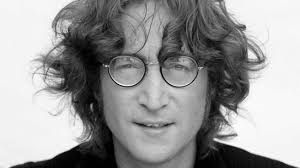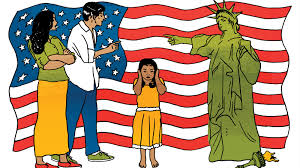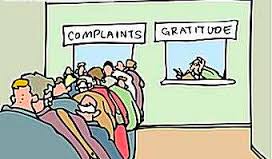
Better or Worse Off?
This is a question often asked the public during presidential election campaigns. Do you think the country is better or worse off than four years ago?
It’s a question you could ask about society today, given that more people, especially the millennial “nones,” (those who answer “none” when asked about their religious affiliation) are abandoning religion. Are we better or worse off without God and religion?
Many people would answer “better,” believing that many of the world’s evils result from religious belief. I often recall the line in the famous John Lennon song, Imagine, which, according to Wikipedia, became “the most commercially successful and critically acclaimed album of Lennon’s solo career.” Here are some of the lyrics.
Imagine there’s no heaven
It’s easy if you try
No hell below us
Above us only sky
Imagine all the people living for today
Imagine there’s no countries
It isn’t hard to do
Nothing to kill or die for
And no religion, too
In short, imagines the song, the world would be a much better place without religion. So as religion appears to be waning in the world, is it a better place? Even though I acknowledge the sins of the past and the material and moral advancements of the past few decades, I don’t think so.
No doubt, there are plenty of things to dislike about religion, many of them embodied in the famous “church lady” of Saturday Night Live. The smugness, the hypocrisy, the tendency to judge. But does religion really teach those things or are some people who think that way drawn to religion just as many are who have the opposite qualities?
There is a case to be made, I believe, that society would be better off without what I would call “bad religion.” I don’t disparage anyone’s faith, but despite the common wisdom, not all religions are the same.
Exercises in Self-Delusion
Religions and trends within religions that claim to be returning to the “simple, basic tenets of faith” are often, in my opinion, exercises in self-delusion. As theologian and sociologist Tomas Halik writes, the dictum, “You can’t step into the same river twice” applies.
These religions and trends within religions are often referred to as “fundamentalist,” which Halik describes as “a disorder of a faith that tries to entrench itself within the shadows of the past against the disturbing complexity of life.”
Those who profess this kind of faith often show little compassion for others, especially the poor, promote individual and state-sponsored violence to protect themselves, and appear to be decidedly selective about Jesus’ teaching. They eagerly embrace such bumper-sticker views as “America First,” the communal version of “Me First.”
When these “faiths” and trends within faiths declare themselves “Christian,” I would counter that they are actually distortions of Christianity, just as the specter of priests abusing children and bishops covering it up are distortions.
The vast majority of evil in human history, even in the past 100 years, occurred in the absence of religion. Stalinism, Nazism, Fascism in Italy and Spain and the Cambodian genocide were all atheistic and anti-religion (though enthusiasts of Spanish fascism may deny it). In numbers of people killed, the Inquisition, the Salem Witch Hunts and the violence surrounding the Reformation pale by comparison.
And if you look objectively at society today, it could use a good dose of “true” religion. In the case of Christianity, it would mean heeding the advice of the writer of the letter of James in the New Testament.
“Beloved: Where jealousy and selfish ambition exist, there is disorder and every foul practice. But the wisdom from above is first of all pure, then peaceable, gentle, compliant, full of mercy and good fruits, without inconstancy or insincerity. And the fruit of righteousness is sown in peace for those who cultivate peace.”
How could we not be better off taking this insight to heart?






